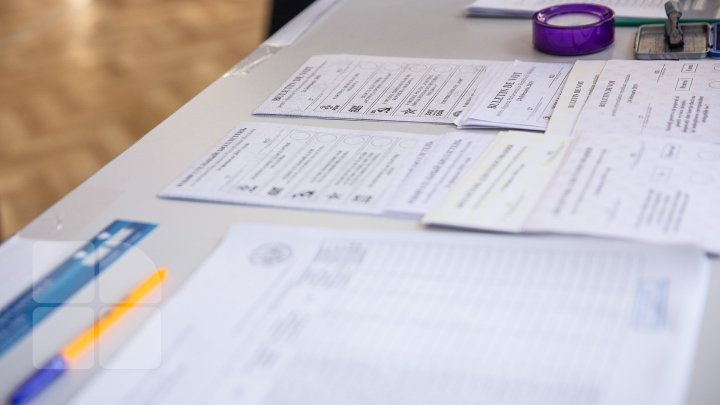WHO ENTERS IN PARLIAMENT. List of candidates on uninominal constituencies
 foto: publika.md
foto: publika.md
Moldova chose for the first time the deputies after the mixed voting system. The most important political leaders have benefited from the trust of the people, who have given them their direct vote. Many have won in detached districts, some even benefiting from the massive vote of people in their native localities.
The leader of the Democratic Party, Vlad Plahotniuc, the active initiator and promoter of the mixed voting system, is one of the candidates who benefited from the massive support of the inhabitants of Nisporeni, his native district. For Plahotniuc voted over 72 percent of voters in constituency No.17 which includes three localities of Straseni.
Prime Minister Pavel Filip also supported the voters in his native district, Straseni. For him, nearly 46 per cent of voters voted for him.
The leaders of the PAS-PPDA binomial block, Andrei Nastase and Maia Sandu, who criticized the mix, also benefited from the voting system. Unlike many other candidates, the two chose not to fight for the seat of a deputy in their native district. Andrei Nastase was elected with 46 percent of the votes in the constituency no. 33, which includes some of the suburbs of the municipality of Chisinau
In turn, Maia Sandu has applied in the constituency no. 50 from the diaspora. In Western Europe, Sandu accrued nearly 81 percent of the vote.
The president of the Party of Socialists, Zinaida Greceanii, won over 46 percent of the constituency, Briceni. Since 2009, she is a deputy, and from March 2008 until September 2009 she has been the prime minister.
Minister of Internal Affairs Alexandru Jizdan won over 41 percent of voters' votes in his native district, Anenii Noi, being elected MP from the DPM.
The honorary president of the Democratic Party, Dumitru Diacov, one of the veterans in the Parliament, took the massive support of the inhabitants of the constituency 40 in the south of the country. Diacov has served as MP in several legislatures since 1994.
Ilan Şor won detached in the constituency no. 18 from Orhei district, accumulating over 59 percent and basically re-writing the scenario of 2015 when, with the massive vote of the people, he became mayor of Orhei.
A surprise of these elections is the independent candidate Alexandru Oleinic. He has accrued nearly 63 percent of the voters' votes in the constituency no. 47 from Transnistria. Alexandru Oleinic served as MP in several legislatures, and in 2009-2011 he was Minister of Information and Communication Technology.
After processing 99.50% of ballot papers, the uninominal constituencies win the following candidates, who will also occupy a seat in Parliament.
Below you see the list:
02. Irina Lozovan, PSRM
03. Oleg Sîrbu, DPM
04. Iurie Urzică, DPM
05. Ion Leucă, DPM
06. Padnevici Corneliu, DPM
07. Alla Pilipetcaia, PSRM
08. Nichiforciuc Eugeniu, DPM
09. Alexandr Usatii, PSRM
10. Alexandr Nesterovschi, PSRM
11. Oleg Savva, PSRM
12. Gheorghe Brasovschi, DPM
13. Eleonora Graur, DPM
14. Maria Ciobanu ACUM
15. Nicolae Ciubuc, DPM
16. Ludmila Guzun, DPM
17. Vladimir Plahotniuc, DPM
18. Ilan Sor, Sor
19. Marina Tauber, Sor
20. Pavel Filip, DPM
21. Lilian Carp, ACUM
22. Liviu Vovc, ACUM
23. Oleg Lipskii, PSRM,
24. Vasile Bolea, PSRM
25. Inga Grigoriu, ACUM
26. Iurie Renita, ACUM
27. Vladmir Bolea, ACUM
28 Vlad Batrancea, PSRM
29. Adrian Lebedinschi, PSRM
37. Petru Frunze, ACUM
38. Alexandru Botnari, DPM
39. Ghenadie Buza, DPM
40. Dumitru Diacov, DPM
41. Efrosenia Gretu, DPM
42. Elena Bacalu, DPM
43. Ion Groza, independent
44. Chiril Tatarlî, PSRM
45. Alexandr Suhodolski, PSRM,
46. Fiodor Gagauz, PSRM
47. Alexandr Oleinic, independent
48. Viorel Melnic, independent
49. Para Gheorghii, PSRM
50. Maia Sandu, ACUM.
51. Alaiba Dumitru, ACUM.
Thus, candidates for the position of deputy nominated by the Democratic Party of Moldova have won most of the uninominal constituencies.
According to the preliminary results presented by the Central Electoral Commission, in the future Parliament, DPM will have 18 mandates of deputy elected directly by the people.
The second is the Socialist Party, which will occupy 16 seats in the legislative future.
CEC data also shows that the Block created by PAS-PPDA has 12 deputies elected in the 51 uninominal constituencies. And the "Shor" party will have representatives in Parliament, elected directly by the people. They will have two deputies who have defeated the constituencies.
The mixed voting system has also provided more chances for independent candidates. Thus, following Sunday's vote, three places in Parliament will belong to them.